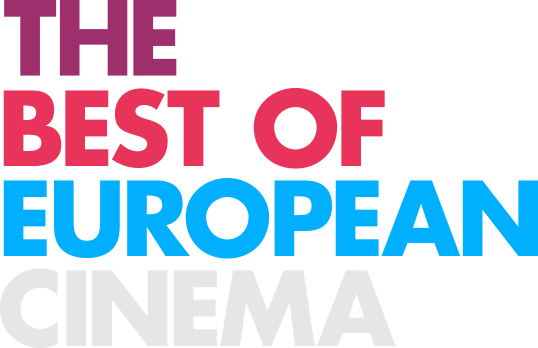Future Frames 2017 Interview: Damián Vondrášek (Director of Imprisoned)
A student at FAMU (Film and TV School of the Academy of Performing Arts in Prague), Damián Vondrášek has already made a number of well-regarded shorts including In The Rain (2014) and Together (2015)
His latest work Imprisoned is a claustrophobic exploration of a man trapped by his situation. You can read a review of the film HERE. It was nominated for Best Student Film at the Czech Lions, the country’s most prestigious award for films.
As Vondrášek prepares to show the film to audience at Karlovy Vary as part of European Film Promotion's Future Frames, Cineuropa Shorts caught up with him to talk more about the film and discover the difficulties of filming in a prison
Cineuropa Shorts: Why did the idea for Imprisoned come from?
Damián Vondrášek: I am not really sure where it started first. The thing was to talk about a personal topic but at the same time not to get limited by it, to take it further. This dilemma of the main character, who has a job opportunity that does not really fit his personality and values but can offer him a solution for his difficult situation, is in a way my personal dilemma as well as being quite a universal story about values and about decisions that have consequences and that deeply affect our personalities. The prison is an environment that fascinated me and it seemed as a great setting to strengthen the dilemma and show the popular ‘prison film’ sub-genre from a different perspective.
CS: The film plays with audience expectation at the start – it’s easy to think that the main protagonist is actually going to prison. Was this playing with expectation deliberate?
DV: Exactly, it was important to create some kind of a secret in the beginning to make the audience curious about the story. Prison employees told me during the research visits to various prisons, that they have to spend so much time behind bars with the prisoners that sometimes it almost feels like they are inmates themselves. So the beginning of the film plays with the audience expectation and at the same time shows that working in prison and being held in prison is in a way similar.
CS: How did you get your location? One would imagine that there would be a lot of bureaucracy involved.
DV: It is quite a big struggle to shoot in a prison especially since we’re a student production. There are a huge amount of safety rules and regulations. Nevertheless we were definite that the film had to be made in a real prison to achieve an authentic atmosphere. The biggest struggle was to even manage to get the permission to shoot in there and it wouldn't be possible without the great work of producer Martina Netíková. It took a lot of effort to persuade the headquarters, but what really helped was that they were interested in the story about a prison employee instead of the typical prisoner perspective, as mostly shown in cinema. In the end we visited many prisons and we were even able to choose between different ones where to shoot, which we didn't really expect when we started the whole process. During the visits we met many interesting prison workers and some of them inspired characters in the film.
CS: The film has a quite raw and documentary style. Did you prepare a lot or did you film quite quickly?
DV: With the cinematographer Filip Marek we decided to follow the main character and focus on his feelings as he goes through the situations. We made a lot of preparation but the most important is always the preformance on the set, to be always ready to change everything when it can strengthen the scene. We decided to limit the actors as little as possible to reach the highest level of authenticity. To create a compact visual style at the same time, we focused a lot on colours, locations and set design.
CS: What does being accepted into Future Frames mean to you? What do you hope to get out of going to Karlovy Vary?
DV: Since this is first time I present a film on major festival I am not really sure what to expect, but it is definitely going to be a great experience.
CS: What projects have you got in store for the future?
DV: I am in the preparation for my next short which is also my bachelor project at the FAMU directing department. It is inspired by the rising extremism in Europe and it tells the story of a police officer who has to manage a complicated situation during his night shift at the Czech borders with Slovakia. The shooting will begin in autumn. Besides that I am working on the screenplay for my feature debut.
24 June 2017, by Laurence Boyce






